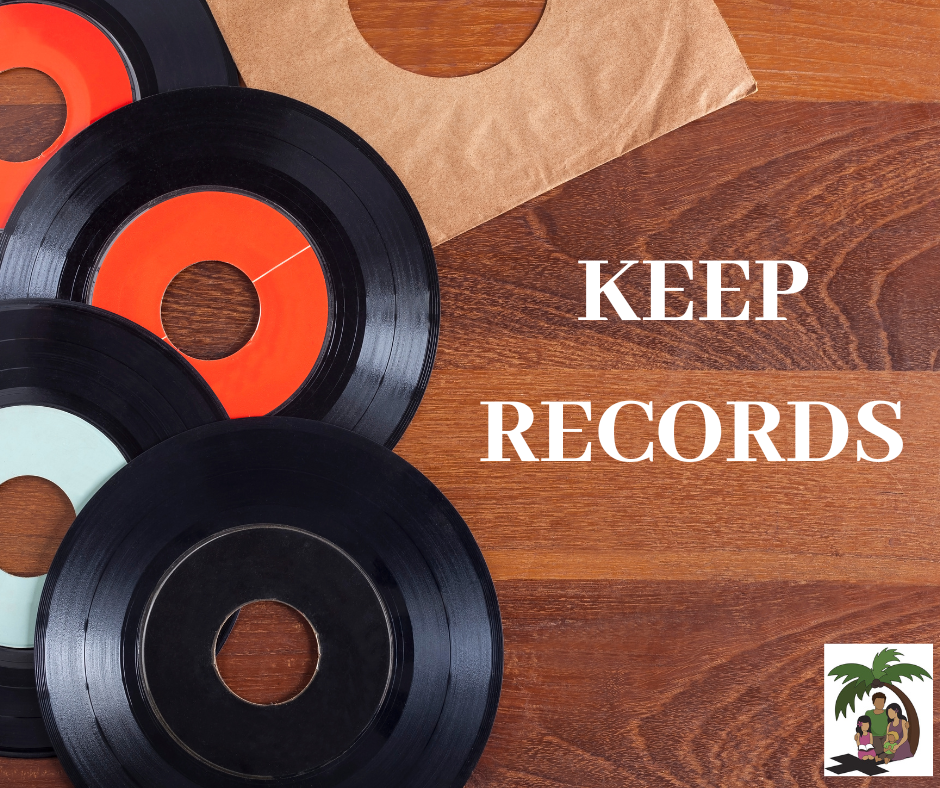So, you’ve finished your homeschool year and are wondering what to do with all the workboo ks, math tests, reports, science tests, stories, art work, spelling tests, science projects. Have I missed anything?
ks, math tests, reports, science tests, stories, art work, spelling tests, science projects. Have I missed anything?
If you like to save everything and have a lot of space, good for you! But that is probably not the reality for most of us – especially in Hawaii.
So, what do you save and what do you discard?
First things first, know what records you are required to keep according to Hawaii’s homeschool law, Chapter 12 Compulsory Attendance Exceptions. At the very least, keep your Notice of Intent and the school’s acknowledgement of your NOI. Also keep on file your annual reports and the bibliography of your curriculum, and other records required by the Chapter 12 rule. You may find the article, “Record Keeping Part 1” on the CHOH website helpful. //christianhomeschoolersofhawaii.org/w/index.php/record-keeping/
If you are a parent of an elementary school child, you may have a heart’s desire to keep every picture your child has drawn and every story your child has written. Everything is so cute and precious! But alas, at some point in your homeschool journey, you may have to do some sifting. Yearly portfolios (using a 3 ring binder) are wonderful ways to store the achievements and memories of the school year.
If that is still too much ‘stuff’ for you, you can use technology to your advantage. Take photos of projects and drawings. Scan reports, stories, and even tests. And put everything on a USB stick. Now you are free to discard all that paper!
Although CHOH advocates homeschooling all the way through high school, if you plan to enroll your child into a private school at any time, it is critical you keep good records of the instructional curriculum or programs used, the methods used to determine mastery, your grading scale and grades.
High school records are particularly important. That would include (but not limited to) courses completed, grades and grading scale, course descriptions, methods used to determine mastery, and extra-curricular activities. This information is needed to complete your child’s high school transcripts. This is where computer lesson plans and records are very helpful!
(Keep in mind, if you enroll your elementary school aged child into the DOE public schools, your child will be placed in the grade according to his/her age. For high school, the DOE does not recognize the credits you assign to your high school student; your child will have to attend public school for at least 3 years to earn a DOE high school diploma.)
You can read more on record keeping methods on CHOH’s website
